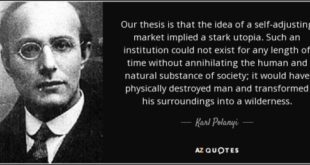Although somewhat critical of its reductive elements, Foucault found certain attractive features in the ideal or programmatic form imagined by American neoliberalism, namely, that it envisages a kind of regulation outside sovereign, disciplinary, and biopolitical forms, that it regulates without the fabrication of subjectivities and in a manner that optimizes difference and tolerates minority groups and practices. Second, from a policy perspective, Foucault showed a certain...
Read More »Ricardiansk ekvivalens och budgetunderskott
Få frågor inom politik och ekonomi diskuteras nu för tiden så mycket — och förstås så lite — som offentlig skuld. Många höjer sina röster och uppmanar till att minska skulden, men få förklarar varför och på vilket sätt en minskning av skulden skulle främja en bättre ekonomi eller ett rättvisare samhälle. Dessutom finns det inga gränser för alla de katastrofer som en stor offentlig skuld förväntas leda till — arbetslöshet, inflation, högre räntor, lägre produktivitetstillväxt,...
Read More »In my dreams
.[embedded content] Gammal kärlek rostar aldrig … Jag var åtta år gammal och detta var favoritlåten.
Read More »Properties of arguments — validity and soundness
Properties of arguments — validity and soundness .[embedded content] Using formal mathematical modelling, mainstream economists sure can guarantee that the conclusions hold given the assumptions. However, the validity we get in abstract model worlds does not warrant transfer to real-world economies. Validity may be good, but it is not enough. Mainstream economists are proud of having an ever-growing smorgasbord of models to cherry-pick from (as long as, of...
Read More »Irrational Exuberance — Robert Shiller’s modern classic
Irrational Exuberance — Robert Shiller’s modern classic At the beginning of the year 2000, a book titled Irrational Exuberance was published. The American economics professor and Nobel laureate Robert Shiller warned that the extensive deregulation in the financial market that had taken place since the Thatcher-Reagan era had led to a rapid credit expansion. Banks and financial institutions saw a skyrocketing increase in lending, and the pursuit of gaining...
Read More »‘Self-adjusting’ markets
Paul Krugman has repeatedly over the years argued that we should continue to use mainstream economics hobby horses like IS-LM and AS-AD models. Here’s one example: So why do AS-AD? … We do want, somewhere along the way, to get across the notion of the self-correcting economy, the notion that in the long run, we may all be dead, but that we also have a tendency to return to full employment via price flexibility. Or to put it differently, you do want somehow to make clear the...
Read More »Universalism vs tribalism
It’s now an article of faith that universalism, like other Enlightenment ideas, is a sham that was invented to disguise Eurocentric views that supported colonialism. When I first heard such claims some fifteen years ago, I thought they were so flimsy they’d soon disappear. For the claims are not simply ungrounded: they turn Enlightenment upside down. Enlightenment thinkers invented the critique of Eurocentrism and were the first to attack colonialism, on the basis of...
Read More »Wokeism and the commodified academic industry
Wokeism and the commodified academic industry .[embedded content]
Read More »The problem with identity politics and wokeism
The problem with identity politics and wokeism .[embedded content]
Read More »The limited epistemic value of ‘variation analysis’
While appeal to R squared is a common rhetorical device, it is a very tenuous connection to any plausible explanatory virtues for many reasons. Either it is meant to be merely a measure of predictability in a given data set or it is a measure of causal influence. In either case it does not tell us much about explanatory power. Taken as a measure of predictive power, it is limited in that it predicts variances only. But what we mostly want to predict is levels, about which it...
Read More » Lars P. Syll
Lars P. Syll






